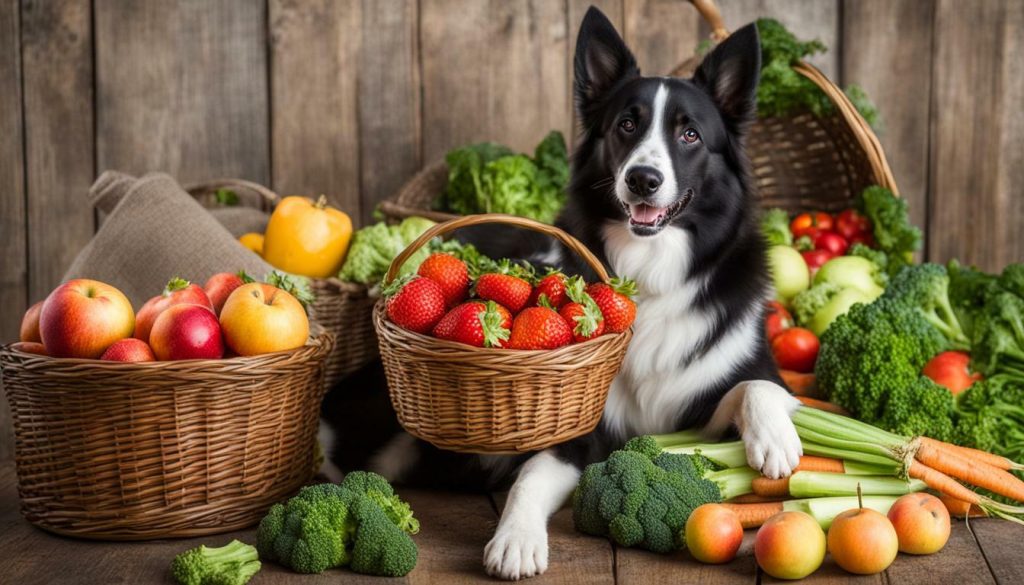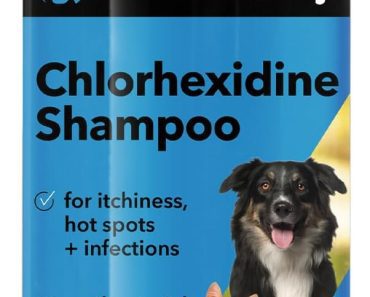
Many pet owners often wonder if it is safe for dogs to eat marshmallows, and in this guide, we will provide all the information you need to know. While marshmallows are not toxic to dogs, they are not a healthy treat either due to their high sugar content. It is important to understand the potential risks involved and make informed decisions about what to feed your furry friend.
Key Takeaways:
- Marshmallows are not toxic to dogs, but they are not a healthy treat either due to their high sugar content.
- Feeding marshmallows to dogs can lead to health issues such as obesity and tooth decay.
- Replace marshmallows with healthier dog-friendly treats like small pieces of chicken or carrots.
- Avoid sugar-free marshmallows as they may contain xylitol, a highly toxic artificial sweetener for dogs.
- Dogs require a balanced diet of proteins, grains, and fruits or vegetables for optimal health.
It is best to consult with a veterinarian if your dog accidentally consumes too many marshmallows, as it may cause stomach upset and indigestion. Prioritize your dog’s health by providing a balanced diet, regular exercise, proper grooming, and routine vet visits. While marshmallows can be an occasional treat, it’s important not to make them a regular part of your dog’s diet. Consider healthier alternatives and always exercise caution when feeding different types of marshmallows to your furry friend.
Are Marshmallows Safe for Dogs to Eat?
Before allowing your furry friend to indulge in marshmallows, it’s crucial to understand the health effects and risks they may pose to dogs. While marshmallows are not toxic to dogs, they are not considered a healthy treat either. The main concern lies in their high sugar content, which can lead to various health issues if consumed in excess.
The primary health effect of dogs consuming marshmallows is the risk of obesity. The excessive sugar intake can contribute to weight gain and obesity in dogs, which can lead to a range of serious health problems, including diabetes, joint issues, and heart disease. Additionally, the sticky texture of marshmallows can stick to a dog’s teeth, increasing the risk of dental problems such as tooth decay and gum disease.

It is recommended to replace marshmallows with healthier alternatives for dogs. Small pieces of cooked chicken or chopped carrots can make excellent, low-sugar treats that are both tasty and beneficial for your four-legged companion. It’s important to note that sugar-free marshmallows should also be avoided, as they often contain the artificial sweetener xylitol, which is highly toxic to dogs.
Risks of Dogs Consuming Marshmallows
- Obesity: Excessive sugar intake can lead to weight gain and obesity in dogs.
- Dental problems: The sticky texture of marshmallows can stick to a dog’s teeth, increasing the risk of tooth decay and gum disease.
- Xylitol: Sugar-free marshmallows may contain the artificial sweetener xylitol, which is highly toxic to dogs.
While marshmallows can be an occasional treat for dogs, it’s important to prioritize their overall health through a balanced diet, regular exercise, grooming, and veterinary check-ups. Dogs require a diet that includes proteins, grains, and fruits or vegetables to meet their nutritional needs. Marshmallows should be avoided for puppies, as their digestive systems are still developing and may not tolerate such treats well. Furthermore, caution should be exercised when feeding dogs different types of marshmallows, such as mini marshmallows, flavored marshmallows, or marshmallow fluff, as they may contain additional ingredients that can be harmful.
In conclusion, while dogs can technically eat marshmallows, they are not recommended due to their high sugar content and potential health risks. It’s best to opt for healthier alternatives and consult with a veterinarian if you have any concerns about your dog’s diet or accidental consumption of too many marshmallows.
The Impact of Sugar on Dogs’ Health
Sugar in marshmallows can have adverse effects on the canine digestive system and contribute to obesity, so it is crucial to consider moderation and explore alternatives. While marshmallows might be a sweet treat that dogs enjoy, their high sugar content can lead to various health issues.
Dogs are not designed to process large amounts of sugar, and their digestive systems can struggle to break it down properly. Excessive sugar consumption can lead to diarrhea, upset stomachs, and even pancreatitis in some cases. Additionally, the excess sugar in marshmallows can contribute to weight gain and obesity in dogs, which can lead to a range of other health problems such as joint issues and diabetes.
It is essential for pet owners to prioritize a balanced diet for their dogs, ensuring they receive the necessary proteins, grains, and fruits or vegetables. Instead of offering marshmallows, it is advisable to provide healthier alternatives. For example, small pieces of cooked chicken or carrots can offer a tasty and nutritious treat without the negative effects of excessive sugar. These alternatives can provide dogs with the satisfaction of a snack while also contributing to their overall well-being.
| Marshmallows | Health Considerations |
|---|---|
| Marshmallow Fluff | The sticky texture of marshmallow fluff can pose a choking hazard and potentially damage a dog’s teeth if consumed regularly. |
| Mini Marshmallows | Mini marshmallows are small and can be a choking hazard, especially for smaller breeds. |
| Flavored Marshmallows | Flavored marshmallows may contain artificial additives and additional sugars that can be harmful to dogs’ health. |
It is important to exercise caution when feeding different types of marshmallows to dogs. Marshmallow fluff, mini marshmallows, and flavored marshmallows all have potential risks that pet owners should be aware of. Consulting a veterinarian is always recommended when introducing new treats or foods into a dog’s diet.

In conclusion, while dogs can technically eat marshmallows, it is best to avoid feeding them to pets as a regular treat due to the negative impact of sugar on their health. Moderation and the inclusion of healthier alternatives in their diet is key to maintaining a dog’s overall well-being. By prioritizing a balanced diet, regular exercise, grooming, and vet visits, pet owners can help ensure their furry friends live happy and healthy lives.
Allergic Reactions and Marshmallows
Some dogs may experience allergic reactions when consuming marshmallows, and it is essential to be aware of the signs and know how to handle such situations. Allergic reactions can range from mild to severe and can manifest as skin irritations, itching, swelling, vomiting, diarrhea, or difficulty breathing. If you notice any of these symptoms after your dog consumes marshmallows, it is crucial to seek veterinary assistance immediately.
To ensure your dog’s safety, it is recommended to introduce new foods gradually and monitor for any adverse reactions. If your dog has a known history of food allergies, it is best to avoid feeding them marshmallows altogether. Even if your dog has previously consumed marshmallows without any issues, it is still important to remain vigilant and watch for any signs of allergic reactions.
“Allergic reactions in dogs can be life-threatening, and it is never worth risking your pet’s health. Always consult with your veterinarian if you have any doubts or concerns.”
There are various treatment options available for dogs experiencing allergic reactions, depending on the severity and type of reaction. Your veterinarian may prescribe medication to alleviate symptoms or recommend a specialized diet to manage food allergies. Additionally, they may suggest allergy testing to identify the specific allergens affecting your dog.

Signs of Allergic Reactions in Dogs
It is important to familiarize yourself with the signs of allergic reactions in dogs to ensure prompt action. Common signs include:
- Excessive scratching or itching
- Skin redness or rashes
- Swelling, particularly around the face, muzzle, or paws
- Hives or welts
- Vomiting or diarrhea
- Difficulty breathing or wheezing
If you observe any of these symptoms after your dog ingests marshmallows or any other food, contact your veterinarian immediately. Prompt intervention can make a significant difference in your dog’s well-being and prevent further complications.
| Allergic Reaction Signs | What to Do |
|---|---|
| Excessive scratching or itching | Contact your veterinarian for advice. |
| Skin redness or rashes | Monitor closely for worsening symptoms and seek veterinary assistance if necessary. |
| Swelling, particularly around the face, muzzle, or paws | Seek immediate veterinary attention as it may signify anaphylaxis. |
| Hives or welts | Consult with your veterinarian for appropriate treatment options. |
| Vomiting or diarrhea | Monitor your dog’s condition and contact your veterinarian for guidance. |
| Difficulty breathing or wheezing | Seek emergency veterinary care without delay. |
Marshmallows to Avoid and Cautionary Considerations
It’s important to exercise caution when feeding dogs different types of marshmallows, including marshmallow fluff, mini marshmallows, and flavored marshmallows, as they may present specific risks. While marshmallows are not toxic to dogs, their high sugar content can lead to health issues like obesity and tooth decay if consumed in excess. Additionally, some types of marshmallows may contain harmful additives or artificial sweeteners that can be dangerous for dogs.
To better understand the potential risks, let’s take a closer look at the different types of marshmallows. Marshmallow fluff, for instance, is a sticky and sugary spread that can stick to a dog’s teeth, increasing the risk of dental problems. Mini marshmallows, often used as toppings or in recipes, can be a choking hazard for dogs due to their small size. Flavored marshmallows, such as those with chocolate or artificial fruit flavors, may contain additional ingredients like cocoa or artificial flavorings that can be harmful to dogs.
Cautionary Considerations with Marshmallows for Dogs
- Avoid feeding dogs marshmallow fluff, as it can contribute to dental issues.
- Be cautious with mini marshmallows, as they can pose a choking hazard for dogs.
- Avoid flavored marshmallows, as they may contain harmful additives or artificial flavorings.
When it comes to treating your furry friend, it’s best to opt for healthier alternatives. Instead of marshmallows, consider offering small pieces of cooked chicken or carrots as a tasty and nutritious treat. These alternatives provide essential nutrients and are generally safer for dogs to consume. Remember, moderation is key when giving treats to dogs, and it’s always a good idea to consult with your veterinarian if you have any concerns or questions regarding your dog’s diet.

| Type of Marshmallows | Risks and Considerations |
|---|---|
| Marshmallow Fluff | Can contribute to dental issues |
| Mini Marshmallows | Choking hazard due to small size |
| Flavored Marshmallows | May contain harmful additives or artificial flavorings |
Importance of a Balanced Diet for Dogs
Dogs require a balanced diet that includes proteins, grains, and fruits or vegetables for optimal health, and marshmallows should only be a small part of their overall diet. A balanced diet is crucial in providing dogs with the necessary nutrients to maintain their wellbeing and energy levels. Proteins are essential for muscle development and repair, while grains provide carbohydrates for energy. Fruits and vegetables offer essential vitamins, minerals, and fiber to support overall health and digestion. By prioritizing a balanced diet, pet owners can ensure their dogs are receiving the nutrients they need to thrive.
The Role of Proteins
Proteins play a vital role in a dog’s diet as they are the building blocks of tissues, enzymes, hormones, and antibodies. High-quality sources of protein include lean meats like chicken, turkey, and fish. These proteins are easily digestible and provide essential amino acids that dogs cannot produce on their own. It’s important to feed dogs a diet that includes sufficient protein to support their growth and maintenance. However, it’s worth noting that not all proteins are created equal, so it’s essential to consult with a veterinarian to determine the appropriate protein levels for your dog’s specific needs.
The Benefits of Grains
Contrary to popular belief, grains can be a valuable part of a dog’s diet when chosen carefully. Whole grains such as rice, oats, and quinoa are excellent sources of carbohydrates that provide sustained energy. They also contain essential vitamins, minerals, and fiber, which support digestion and overall health. When selecting grain-based dog foods, look for high-quality options that prioritize whole grains and avoid processed, low-nutrient fillers. Whole grains, in moderation, can contribute to a well-rounded and nutritious diet for dogs.
Incorporating Fruits and Vegetables
Fruits and vegetables are rich in essential vitamins, minerals, and antioxidants that can support a dog’s immune system and overall health. Some dog-approved fruits and vegetables include apples, bananas, carrots, and green beans. These can be given as treats or added to a dog’s regular meals for additional variety and nutrition. However, it’s important to avoid toxic fruits such as grapes and cherries, as well as onions and garlic, which can be harmful to dogs. Consulting with a veterinarian is recommended to ensure that the fruits and vegetables incorporated into a dog’s diet are safe and beneficial for their specific needs.
| Proteins | Grains | Fruits and Vegetables |
|---|---|---|
| Chicken | Rice | Apples |
| Turkey | Oats | Bananas |
| Fish | Quinoa | Carrots |

In conclusion, while dogs may enjoy the occasional marshmallow as a treat, it’s important to prioritize a balanced diet that includes proteins, grains, and fruits or vegetables for their overall health and wellbeing. Marshmallows should be limited due to their high sugar content, which can lead to health issues like obesity and tooth decay. By replacing marshmallows with healthier alternatives, such as small pieces of chicken or carrots, pet owners can ensure their dogs receive the nutrients they need while still enjoying the occasional indulgence. Remember, consult with a veterinarian to tailor a diet plan that meets your dog’s specific needs and always prioritize their well-being.
Marshmallows and Puppies
When it comes to puppies, it is best to avoid feeding them marshmallows due to potential risks and focus on providing a balanced diet appropriate for their age. Puppies have developing digestive systems, and the high sugar content in marshmallows can be harmful to their health. Instead, it is recommended to offer puppies dog-friendly treats that are nutritious and beneficial for their growth.
Puppies require a balanced diet that includes proteins, grains, and fruits or vegetables to support their development. These essential nutrients provide them with the necessary energy and promote their overall well-being. Treats like small pieces of chicken or carrots can be a more suitable option for puppies, as they offer nutritional value without the risks associated with marshmallows.
| Marshmallow Types | Cautionary Considerations |
|---|---|
| Marshmallow Fluff | Avoid feeding marshmallow fluff to puppies or dogs, as it contains high amounts of sugar and artificial ingredients that can negatively impact their health. |
| Mini Marshmallows | While mini marshmallows may seem harmless, they still contain high sugar content. It is best to limit or avoid them when it comes to feeding puppies. |
| Flavored Marshmallows | Flavored marshmallows often have additional additives and artificial ingredients that can be detrimental to a puppy’s health. It is advisable to stay away from these varieties when choosing treats. |
Remember, the well-being of your puppy should be the top priority. By providing a balanced diet and appropriate treats, you can help foster their healthy growth and prevent potential health issues that may arise from feeding them inappropriate foods like marshmallows.
What to Do if Your Dog Eats Too Many Marshmallows
If your dog accidentally consumes too many marshmallows, it’s important to be aware of potential stomach upset and indigestion, and knowing when to seek veterinary assistance is crucial. Dogs are not able to digest large amounts of sugar, and excessive consumption can lead to digestive issues and discomfort.
One of the first steps you can take is to monitor your dog closely for any signs of distress. These may include vomiting, diarrhea, bloating, or excessive thirst. If you notice any of these symptoms, it’s best to contact your veterinarian right away for guidance.
While waiting for veterinary advice, you can offer your dog some relief by ensuring they have access to plenty of fresh water. This can help to flush out their system and prevent dehydration. However, refrain from inducing vomiting or giving any medications without consulting your vet first.
| Symptoms of Excessive Marshmallow Consumption: | What to Do: |
|---|---|
| Vomiting | Contact your veterinarian for guidance |
| Diarrhea | Contact your veterinarian for guidance |
| Bloating | Contact your veterinarian for guidance |
| Excessive thirst | Contact your veterinarian for guidance |
Remember, prevention is key when it comes to your dog’s health. While it may be tempting to share treats like marshmallows with your furry companion, it’s important to prioritize their well-being. Replace marshmallows with healthier options like small pieces of chicken or carrots as occasional treats.

Providing a balanced diet consisting of proteins, grains, and fruits or vegetables is essential to your dog’s overall health. Regular exercise, grooming, and veterinary check-ups are equally important in ensuring their well-being. While marshmallows can be enjoyed as an occasional treat, it’s best to avoid them as a regular part of their diet.
If you have a puppy, it’s especially crucial to avoid feeding them marshmallows. Puppies have sensitive digestive systems and are more susceptible to digestive issues. Consult with your veterinarian for appropriate treats and feeding guidelines.
Summary
- If your dog accidentally consumes too many marshmallows, be aware of potential stomach upset and indigestion.
- Monitor your dog for symptoms such as vomiting, diarrhea, bloating, or excessive thirst.
- Contact your veterinarian for guidance and refrain from inducing vomiting or giving medications without professional advice.
- Replace marshmallows with healthier options like small pieces of chicken or carrots as occasional treats.
- Prioritize a balanced diet and regular exercise, grooming, and vet visits for your dog’s well-being.
- Avoid feeding marshmallows to puppies due to their sensitive digestive systems.
References:
- Marshmallow Treats: Are They Safe for Dogs?” by American Kennel Club
- Can Dogs Eat Marshmallows?” by The Spruce Pets
- “The Dangers of Xylitol for Dogs” by Pet Poison Helpline
Conclusion
In conclusion, while dogs can eat marshmallows in moderation, it is crucial to prioritize their health by providing a balanced diet and avoiding excessive consumption of sugary treats like marshmallows. While marshmallows are not toxic to dogs, their high sugar content can lead to health issues such as obesity and tooth decay if consumed in large quantities.
It is recommended to replace marshmallows with healthier dog-friendly treats, such as small pieces of chicken or carrots, which provide nutritional benefits without the negative effects of excessive sugar intake. Additionally, it is important to avoid sugar-free marshmallows, as they may contain the artificial sweetener xylitol, which can be highly toxic to dogs.
Dogs require a balanced diet consisting of proteins, grains, and fruits or vegetables to maintain optimal health. While marshmallows can be an occasional treat for dogs, they should not be a regular part of their diet. Caution should also be exercised when feeding different types of marshmallows, such as mini marshmallows, flavored marshmallows, or marshmallow fluff, as they may pose additional risks.
If a dog accidentally consumes too many marshmallows, it is advisable to consult with a veterinarian. Excessive consumption may lead to stomach upset and indigestion. Therefore, it is important to monitor a dog’s treat intake and seek professional advice if necessary.
FAQ
Can dogs eat marshmallows?
Dogs can eat marshmallows, but they are not healthy due to their high sugar content. It is recommended to replace marshmallows with healthier dog-friendly treats.
Are marshmallows safe for dogs to eat?
Marshmallows are not toxic to dogs, but they can cause health issues like obesity and tooth decay due to their high sugar content.
What is the impact of sugar on dogs’ health?
Dogs can suffer from obesity and dental problems if they consume too much sugar from marshmallows. It is important to prioritize a balanced diet.
Can dogs have sugar-free marshmallows?
No, sugar-free marshmallows should be avoided as they may contain the artificial sweetener xylitol, which is highly toxic to dogs.
What are some cautionary considerations when feeding marshmallows to dogs?
Caution should be exercised when feeding different types of marshmallows, such as marshmallow fluff, mini marshmallows, or flavored marshmallows. Consult with a vet if your dog accidentally consumes too many marshmallows.
Why is a balanced diet important for dogs?
Dogs require a balanced diet of proteins, grains, and fruits or vegetables. Marshmallows should only be an occasional treat and not a regular part of their diet.
Can puppies eat marshmallows?
Marshmallows should be avoided for puppies, as their nutritional needs differ from adult dogs. It is best to consult with your vet regarding appropriate treats for puppies.
What should I do if my dog eats too many marshmallows?
If your dog accidentally consumes too many marshmallows, it may cause stomach upset and indigestion. It is recommended to seek veterinary assistance if necessary.






